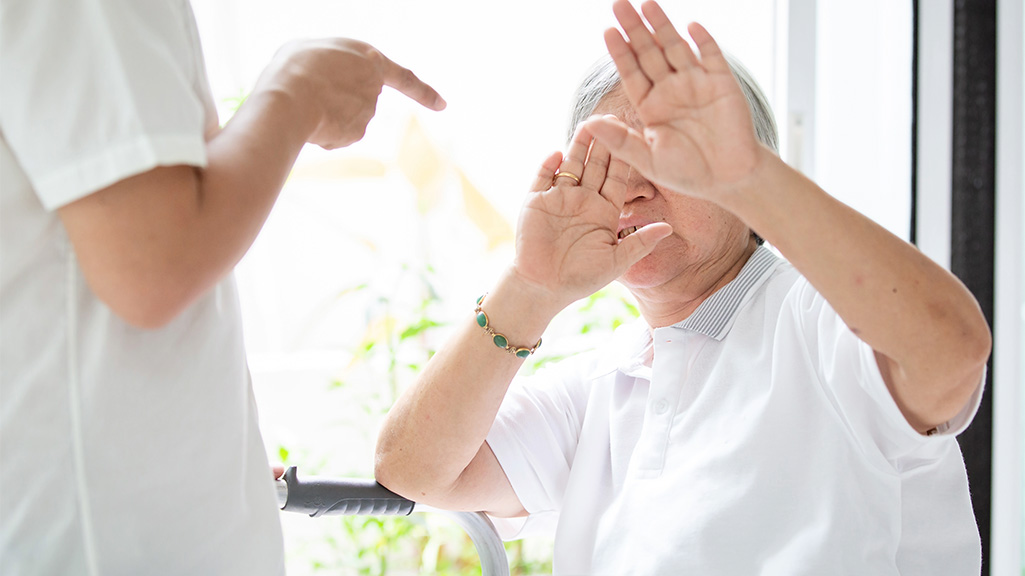
Recognizing signs of abuse in nursing homes and assisted living facilities is crucial to ensuring the safety and well-being of elderly residents.
Although nursing home care offers multiple benefits to seniors and can significantly enhance their quality of life, data collected over the past few years points to a disturbing of abuse in nursing homes and assisted living facilities¹.
Those who find themselves in the care of a nursing home or assisted living facility are often some of the most vulnerable members of the population. Nursing home elder abuse is characterized by either the intentional or unintentional mistreatment of elderly individuals who reside in assisted living facilities.
Here’s how you can identify potential signs of abuse in Nursing Homes and Assisted Living Facilities
Physical Abuse
Unexplained Injuries: Look for bruises, welts, scars, or fractures. Frequent hospital visits or untreated injuries might also indicate abuse.
Medication Issues: Be alert if the resident appears overmedicated or under-medicated.
Restraints: Check for marks or bruises indicating the use of physical restraints.
Emotional Abuse
Behavioral Changes: Sudden mood swings, depression, withdrawal from normal activities, or unusual agitation can be signs.
Verbal Abuse: Listen for any threats, insults, or other forms of verbal abuse from caregivers.
Sexual Abuse
Physical Signs: Unexplained infections, bruising around sensitive areas, or torn, stained, or bloody underclothing.
Emotional Reactions: Unusual fear, anxiety, or withdrawal around certain staff members or when certain topics are discussed.
Neglect
Malnutrition: Look for signs of sudden weight loss, dehydration, or other indicators of malnutrition.
Poor Hygiene: Unkempt appearance, dirty clothes, untreated bedsores, or other signs of poor hygiene and care.
Unsafe Living Conditions: Check for hazards like slippery floors, poor lighting, or other environmental risks.
Financial Abuse
Unexplained Financial Changes: Sudden changes in financial situations, missing belongings, or unauthorized transactions can be signs of financial exploitation.
Unpaid Bills: Even though the resident has enough funds, neglect of financial obligations can indicate financial abuse.
Social and Psychological Indicators
Isolation: If the resident is often left alone or kept away from family and friends, it could be a sign of abuse.
Fear of Caregivers: Any apparent fear, reluctance, or anxiety towards caregivers should raise concerns.
What to do if suspect abuse in nursing homes and assisted living facilities
If you suspect abuse is taking place in a nursing home or care facility, start by taking notes and gathering evidence. Regularly check on your loved ones so you can properly track any changes in behavior, physical appearance, or emotional well-being.
Address your concerns with supervisors, nursing directors, doctors, administrators, and social workers. If the abuse is not investigated, addressed, or resolved, contact your local Long-Term Care Ombudsman program or Adult Protective Services. These agencies check on the welfare of nursing home residents to determine if abuse is taking place.
Even if you exhaust all your resources, federal and state nursing home abuse laws are in place to ensure nursing facilities provide the highest quality care to residents. When they fail to protect residents by leaving abuse claims unchecked or if elders sustain serious or life-threatening injuries, you may be entitled to compensation.
Discuss options with your attorney or contact Elder Advisors Law to help you determine whether or not your case meets the requirements for an elder abuse lawsuit and what your next steps may be.
¹Source: Lawyers with Purpose

